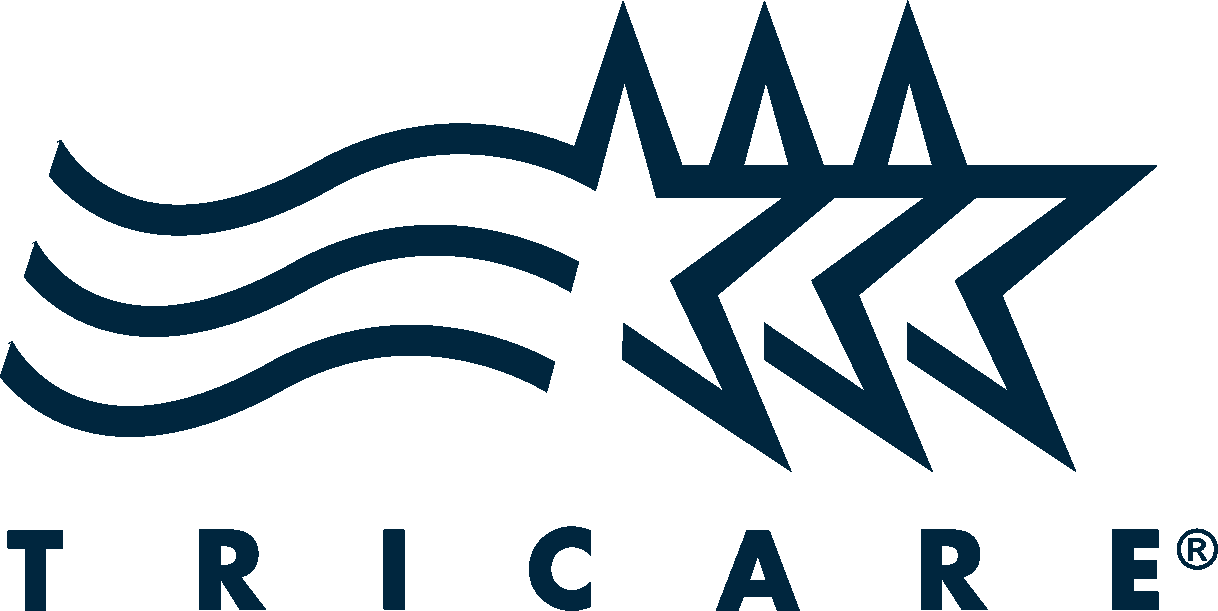
Fentanyl Addiction Treatment Near Knoxville, Tennessee
Cornerstone of Recovery near Knoxville offers affordable, comprehensive fentanyl addiction treatment through our proven 12-step recovery program. Experience effective detox, residential care, and personalized support in the heart of East Tennessee.
Affordable Fentanyl Addiction Treatment in Tennessee
Fentanyl addiction has emerged as one of the most difficult challenges facing individuals and communities across Tennessee. This synthetic opioid, which can be 50 to 100 times more potent than morphine, has fundamentally changed the landscape of addiction treatment and recovery. At Cornerstone of Recovery, located near Knoxville in Louisville, Tennessee, we have dedicated ourselves to understanding and addressing the unique complexities that fentanyl addiction presents to our clients and their families.
The path to fentanyl addiction often begins in ways that individuals never anticipated. Some people first encounter this powerful substance through legitimate medical prescriptions for managing severe pain conditions. Others may unknowingly consume fentanyl when it has been mixed with other substances they intended to use, such as heroin, cocaine, or counterfeit prescription medications. This hidden presence of fentanyl in the drug supply has created a crisis that affects people from all backgrounds and circumstances, making awareness and early intervention more critical than ever before.
What makes fentanyl particularly dangerous is not only its extraordinary strength but also how rapidly it can create physical dependence and tolerance. The substance works by overwhelming the brain’s natural opioid receptors, creating an intense euphoric experience that is quickly followed by powerful cravings for more of the drug. This cycle of use and craving can establish itself within a matter of days or weeks, making it critical for individuals to seek professional help as soon as possible.
At Cornerstone of Recovery, we approach fentanyl addiction with the comprehensive understanding that it requires. Our treatment philosophy is built on the recognition that addiction is a complex medical condition that affects not only the individual but also their family members, friends, and entire community network. We believe deeply that recovery is not only possible but achievable for every person who seeks help, regardless of how long they have struggled with addiction or what previous experiences they may have had with treatment attempts.
Our facility is situated in the beautiful landscape of East Tennessee, providing a peaceful and inspiring environment where individuals can focus entirely on their recovery journey.
The natural beauty of our surroundings, combined with our evidence-based treatment approaches and experienced clinical team, creates an atmosphere that promotes healing, reflection, and personal growth. We have been serving the Tennessee community and surrounding regions for years, building a reputation for providing effective, affordable treatment that families can trust during their most challenging times.
Fentanyl Addiction Symptoms and Warning Signs
Recognizing the signs and symptoms of fentanyl addiction is critical for early intervention and successful treatment outcomes. It can be a matter of life and death.
Because of the drug’s extreme potency and the very narrow margin between an effective dose and a potentially fatal overdose, early identification and intervention become absolutely critical. At Cornerstone of Recovery, we work closely with families and loved ones to help them understand these warning signs and know how to respond appropriately when they observe them.

What if Everything Could Change, Starting Today?
Admissions Counselors are available to talk 24/7.
Physical Signs of Fentanyl Use
The physical signs of fentanyl use are often the most immediately noticeable indicators that something is seriously wrong. Users frequently display extreme sedation that goes far beyond normal tiredness or fatigue. This condition, usually called “nodding off,” involves the person appearing to fall asleep suddenly while engaged in normal activities such as eating, talking, or even standing upright. These episodes can occur without warning and may last for varying periods.
Respiratory changes represent the most dangerous physical sign of fentanyl use. The drug suppresses the central nervous system, causing breathing to become dangerously slow, shallow, or irregular. In severe cases, breathing may stop entirely for periods of time. Family members may notice that their loved one’s skin has a bluish or grayish tint, particularly around the lips, fingernails, or other areas where blood vessels are close to the surface. These respiratory symptoms require immediate emergency medical attention as they can indicate a life-threatening overdose situation.
Other significant physical signs include pupils that remain extremely small even in dim lighting conditions, dramatic changes in body temperature where the person may feel unusually cold or hot to the touch, and severe gastrointestinal problems, including persistent nausea, vomiting, and constipation. Many users also experience significant weight loss as the drug suppresses normal appetite, and the lifestyle associated with addiction often involves neglecting basic nutritional and self-care needs.
Behavioral and Emotional Warning Signs
The behavioral changes associated with fentanyl addiction can be just as concerning as the physical symptoms, though they may develop more gradually over time. Individuals often begin to withdraw from important relationships with family members, friends, and colleagues. They may lose interest in activities, hobbies, or responsibilities that were once important to them. This social isolation frequently stems from shame about their drug use, as well as the practical need to conceal their addiction from others who might intervene.
Cognitive function typically becomes significantly impaired, with users experiencing difficulty concentrating on tasks, making important decisions, or remembering crucial information. They may appear confused or disoriented even when not actively under the influence of the drug. Sleep patterns often become severely disrupted, with individuals staying awake for extended periods followed by long stretches of deep, difficult-to-wake sleep.
As the addiction progresses and takes hold more firmly, behavioral changes may become increasingly dramatic and concerning. Individuals may begin engaging in risky or illegal activities to obtain money for purchasing drugs, such as stealing from family members or employers, selling personal possessions of value, or associating with dangerous individuals or criminal networks. They may become skilled at lying about their whereabouts, making elaborate excuses for their behavior, or becoming defensive and angry when questioned about their activities or condition.
If you or someone you care about is struggling with fentanyl addiction, please know that help is available and recovery is absolutely possible. Cornerstone of Recovery has been providing hope, healing, and transformation to individuals and families affected by addiction for years. Our compassionate and experienced team is ready to guide you through every step of the recovery process with the expertise, support, and understanding you deserve.
INSURANCE OPTIONS
We are in network with most insurance providers, including Blue Cross Blue Shield, United Healthcare, Humana, Aetna, TRICARE, and Veterans Community Care programs. Contact us for a free insurance verification to find out what benefits are available through your plan.






What Are the Long-Term Effects of Fentanyl Addiction?
The health consequences of fentanyl use extend far beyond the immediate and obvious risk of overdose, though that risk remains the most pressing and dangerous concern. At Cornerstone of Recovery, we help our clients and their families understand the full spectrum of health effects associated with fentanyl use, both to help them understand the urgency of seeking treatment and to address the various medical and psychological issues that may need attention during the recovery process.
Long-Term Physical and Medical Consequences
Chronic fentanyl use creates a cascade of serious health problems that can affect virtually every organ system and function in the body. The respiratory system may suffer permanent damage from repeated episodes of oxygen deprivation, potentially leading to chronic breathing difficulties, increased susceptibility to respiratory infections, and long-term complications that may persist even after achieving sobriety.
The cardiovascular system faces ongoing and cumulative stress from the drug’s effects on heart rate regulation, blood pressure control, and overall cardiac function. Long-term users may develop serious heart rhythm disorders, weakened heart muscle that affects the heart’s ability to pump blood effectively, or a significantly increased risk of heart attack and stroke. For individuals who inject fentanyl, the additional dangers include developing serious and potentially life-threatening heart infections, collapsed or damaged veins, and dangerous blood clots that can travel to vital organs.
Neurological effects of chronic fentanyl use can be particularly devastating and long-lasting. The brain’s natural reward and pleasure systems become fundamentally altered and damaged, making it extremely difficult for individuals to experience normal pleasure from everyday activities, relationships, or accomplishments. This condition, known as anhedonia, can persist for months or even years after stopping drug use and represents one of the major challenges in maintaining long-term sobriety.
Memory problems, difficulty concentrating on tasks, and impaired decision-making abilities are common long-term effects that may persist beyond the initial withdrawal period. While many of these cognitive effects can improve with sustained sobriety and appropriate treatment, the recovery process may take considerable time and require ongoing support and intervention.
The immune system also suffers significantly under the stress of chronic opioid use, leaving individuals much more vulnerable to infections of all types and causing them to heal more slowly from injuries, illnesses, or medical procedures. This compromised immune function, combined with the lifestyle factors often associated with addiction, such as poor nutrition, inadequate sleep, and exposure to unsanitary conditions, can lead to a wide range of secondary health problems that require ongoing medical attention and treatment.
Mental Health and Psychological Effects
The psychological impact of fentanyl addiction extends far beyond the physical dependence on the substance itself. Many users develop severe depression, anxiety disorders, and other mental health conditions that may persist even after the physical withdrawal symptoms have resolved completely. The shame, guilt, and self-blame associated with addiction can create additional psychological barriers to recovery that require professional intervention and ongoing support to be addressed effectively.
Cognitive function may remain impaired for months or even years after stopping fentanyl use. Users may continue to struggle with memory problems, difficulty processing and retaining new information, and challenges with executive function skills such as planning, organization, and problem-solving. These cognitive effects can make it extremely difficult to maintain employment, sustain healthy relationships, and manage other important aspects of daily life, highlighting the critical importance of comprehensive treatment that addresses these issues as part of the recovery process.
12-Step-Based Fentanyl Addiction Recovery at Cornerstone of Recovery
At Cornerstone of Recovery, our approach to fentanyl addiction treatment is built on the proven foundation of the 12-step recovery program, enhanced with modern medical interventions, evidence-based therapeutic practices, and a deep commitment to making treatment affordable and accessible to individuals and families throughout Tennessee and beyond.
We understand that successful recovery from fentanyl addiction requires addressing not only the physical dependence on alcohol but also the underlying psychological, social, behavioral, and spiritual factors that contribute to the development and maintenance of addiction
Our Proven Treatment Process
Thorough Assessment and Personalized Treatment Planning
Every individual who enters our program begins their recovery journey with a comprehensive assessment conducted by our experienced team of medical professionals, addiction specialists, and licensed mental health counselors. This detailed evaluation examines not only the extent and severity of the fentanyl addiction but also identifies any co-occurring mental health conditions, medical complications, family history factors, and social circumstances that may impact the treatment process. We use this comprehensive information to develop a completely individualized treatment plan that addresses each person’s unique needs, circumstances, and recovery goals.
Medically Supervised Detox and Stabilization
For individuals who are experiencing withdrawal symptoms or who require medical supervision during the initial stages of recovery, we provide safe, comfortable, and medically supervised detoxification services. Our experienced medical team closely monitors each client throughout the entire detox process, utilizing appropriate medications and interventions to manage withdrawal symptoms, prevent medical complications, and ensure the safety and comfort of each individual. We understand that fentanyl withdrawal can be particularly challenging both physically and emotionally, and we are fully committed to making this process as comfortable and manageable as possible.
Medication Assisted Treatment Integration
We utilize FDA-approved medications such as methadone, buprenorphine, and naltrexone as integral components of our comprehensive treatment approach. These medications serve multiple important functions: they help reduce cravings and urges to use, prevent or minimize withdrawal symptoms, and block the euphoric effects of opioids if a person does use during their recovery process. Our medical team works closely with each client to carefully monitor their response to medication and make any necessary adjustments to optimize treatment outcomes and minimize side effects.
12-Step Based Recovery Program
The foundation of our treatment program is built upon the proven principles of the 12-step recovery model, which has helped millions of individuals worldwide overcome addiction and build meaningful, fulfilling lives in recovery. This approach emphasizes personal accountability, spiritual growth, peer support, and the development of healthy coping mechanisms. Our experienced counselors guide clients through each step of the process, helping them understand and apply these principles to their unique recovery journey.
Individual and Group Therapy Sessions
We provide intensive individual and group therapy sessions utilizing evidence-based therapeutic approaches such as cognitive behavioral therapy, dialectical behavior therapy, motivational interviewing, and trauma-informed care. These sessions take place within Inpatient and Outpatient treatment, helping clients understand the underlying causes and triggers of their addiction, develop effective coping strategies for managing stress and difficult emotions, and build the skills necessary for maintaining long-term sobriety. Our licensed therapists specialize in addiction treatment and provide compassionate, non-judgmental support throughout recovery.
Family Involvement and Education
We recognize that addiction affects entire family systems, not just the individual struggling with substance use. Our comprehensive family therapy and education programs help repair damaged relationships, improve communication patterns, and educate family members about the nature of addiction and the recovery process. We also provide support, resources, and counseling for family members who may be dealing with their own trauma, stress, and emotional challenges related to their loved one’s addiction.
Comprehensive Aftercare and Alumni Support
Recovery from fentanyl addiction is a lifelong journey that extends far beyond initial treatment. We work closely with each client to develop a detailed and comprehensive continuing care plan that may include ongoing individual or group therapy, regular participation in support group meetings, sober living arrangements, vocational or educational support, and ongoing medical care. Our active alumni program provides ongoing connection, support, and resources for graduates of our program, helping them maintain their sobriety and continue growing in their recovery for years to come.






